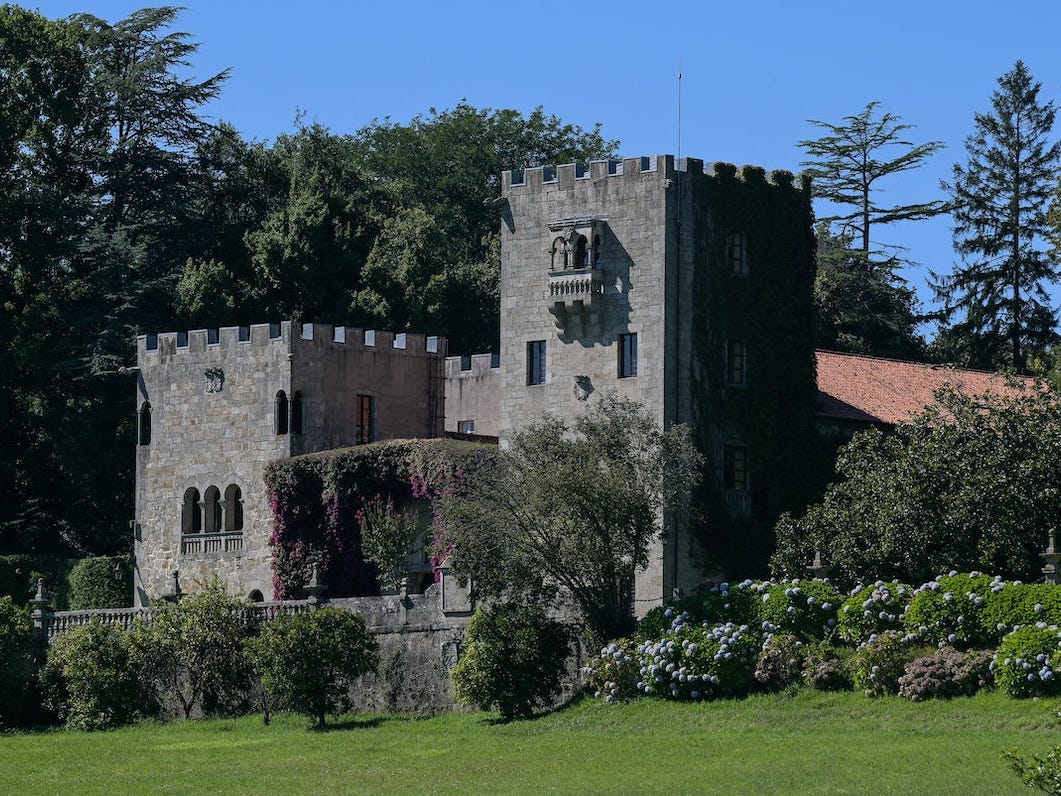
M. Dylan/Europa Press via Getty Images
- Following years of legal battles, Francisco Franco’s relatives have finally been evicted from Pazo de Meirás.
- Dictator Francisco Franco ruled Spain from 1938 to 1975. It was an era marked by repression, the killing of thousands of political opponents, and nationalist authoritarianism.
- Spain’s deputy prime minister celebrated the property being handed over in a ceremony on Thursday.
- Franco’s grandson referred to the seizure of the property as a “circus,” according to Politico.
- The palace will now be used to commemorate an author who previously lived there and to spread the “truth” about the dictator’s oppressive regime.
- Visit Insider’s homepage for more stories.
After many years of litigation, the summer palace of former dictator Francisco Franco has been returned to the Spanish government.
On Thursday, a ceremony – which was broadcast live on social media – marked the end of a bitter dispute between Franco’s family and the Spanish Socialist Workers’ Party.
Pazo de Meirás, a 19th-century palace in Galicia, was acquired by Franco during the Spanish Civil War. It was gifted to him by the Nationalist faction in 1938.
Franco’s heirs claim that, three years later, the dictator formally purchased the property.
This has long been disputed and, over the last few years, became a hot topic in Spanish politics. Spain’s socialist government had tried on numerous occasions to seize the property from the descendants and claim ownership of it for the state.
In 2018, Spain's prime minister Pedro Sanchez lost a lawsuit that hoped to evict the family living in Pazo de Meirás. This followed public outrage after the family put it up for sale at a price of €8 million ($9.7 million), according to the Spanish news agency EFE.
The situation changed, however, in September 2020 when a judge ruled that the palace did not belong to Franco's relatives. It was decided that the palace had been given to Franco in his role as head of state and not in a personal capacity, according to the BBC.
The Spanish State finally seized the property on December 10.
The dictator's grandson, also named Francisco Franco, expressed his displeasure to Spanish media. He referred to the events as a "circus," according to Politico.
Spain's deputy prime minister, however, celebrated the victory in a statement.
Carmen Calvo thanked the "thousands and thousands of men and women from Galicia and the rest of Spain" for pushing for the handover.
She expressed the government's intent to use the building to commemorate the work of a former owner - writer Emilia Pardo Bazan.
Calvo also explained that the palace will open to visitors and will "tell the truth of Franco's passage through it".
Franco led Spain between 1938 and his death in 1975. His rule was marked by repression, the killing of thousands of political opponents, and nationalist authoritarianism.
